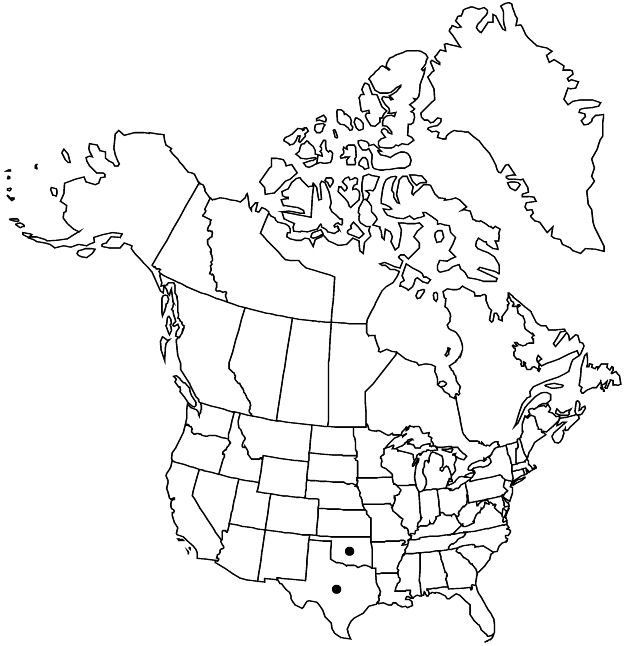Vitis ×doaniana
Mission Vitic. Amér., 101. 1889.
Plants usually high climbing, sometimes sprawling and ± shrubby when without support, sparsely branched. Branches: bark tardily exfoliating in shreds; nodal diaphragms 1–2 mm thick; branchlets terete, densely tomentose to glabrate, growing tips not enveloped by unfolding leaves; tendrils along length of branchlets, persistent, branched, tendrils (or inflorescences) at only 2 consecutive nodes; nodes not red-banded. Leaves: stipules 3–6 mm; petiole 1/2 blade; blade cordate, 5–15 cm, usually 3-shouldered to shallowly 3-lobed, apex acute to short acuminate, abaxial surface not glaucous, moderately to densely arachnoid, visible through hairs, veins hirtellous, adaxial surface sparsely to moderately arachnoid. Inflorescences 4–10 cm. Flowers functionally unisexual. Berries black, heavily glaucous, globose, 12+ mm diam., skin separating from pulp; lenticels absent. 2n = 38.
Phenology: Flowering Apr–May; fruiting Jul–Aug.
Elevation: 200–400 m.
Discussion
Vitis ×doaniana is endemic to well-drained soils of the Rolling Plains and Cross Timbers and Prairies regions in north central Texas and adjacent Oklahoma.
Vitis ×doaniana is a hybrid between V. mustangensis and V. acerifolia, and was once more common in nature than it is at present. It was named for Judge J. Doan of Wilbarger County, Texas, who manufactured wine from the berries of this species.
Selected References
None.
